By Blaž Zgaga (Nacional), contributions by Stefano Vergine (L’Espresso) and Jeroen Wester (NRC Handelsblad)
FIFA sanctioned the Croatian Football Federation with a 16,000 Swiss Franc fine for the transfer of Nigerian player Goodness Ohiremen Ayaji outside of the Transfer Management System (TMS) in December 2017.
Simultaneously, a decision on a proposed fine of 10,000 Swiss Francs in a case against FC Rijeka for the transfer of same player was made, although the club denies this.
However, Football Leaks documents obtained by Der Spiegel and shared with Nacional, L’Espresso, NRC Handelsblad and other partners in the European Investigative Collaborations (EIC) network reveal this single transfer is only the tip of the iceberg.
Similar wrongdoings happened during the transfers of six additional Nigerian players who had “first registration” by the Croatian Football Federation for FC Rijeka between 2012 and 2016, despite first being registered with the Nigerian Football Federation.
Some Nigerian players moved to Croatia as minors, where they waited until their 18th birthday and “first registration” with Rijeka. Also there is a possible conflict of interest with the chief executive officer of FC Rijeka, Damir Mišković, who is also the vice-president of the Croatian Football Federation and the honorary consul of Croatia to Nigeria.
He signed a “memorandum of understanding” regarding a partnership with the Nigerian Football Federation in 2014, as a representative of the company Orlean Invest West Africa Limited, but he manages also company Orlean Invest Africa Limited which founded Football College Abuja, a main recruitment base for Nigerian football players who ended up in the Croatian coastal city of Rijeka.
Documents show that young Nigerian talents from Abuja were first registered with the Nigerian Football Federation. When they turned 18 years old, they were officially transferred to FC Rijeka, with the assistance of the Croatian Football Federation, which registered them again as “first registration”. In this way the Croatian Federation and the club breached FIFA regulations, as such transfers of players should be executed as “international transfers”, with player’s International Transfer Certificates.
FIFA has opened many investigations against Croatian, Italian and Nigerian football federations, against Football College Abuja and Croatian and Italian football clubs FC Rijeka, Spezia Calcio and AS Roma in relation to the transfers of young players from Nigeria. Some inquiries have finished already and the FIFA Disciplinary Committee has sanctioned breaches, while other investigations are ongoing.
Croatian Damir Mišković is an operative and a front for one of richest and least known Italian billionaires, Gabriele Volpi, who owns the Stichting Social Sport, registered in the Netherlands, behind a trust in Bahamas, managed by Panamanian company. Volpi is also the second major shareholder of one of the biggest Italian banks, Carige. He was prosecuted in the 1980s in connection with the bankruptcy of his company, but never served a sentence because of a general amnesty in Italy. He was prosecuted again this year in Italy for money-laundering. After Volpi sold 70 percent shares of FC Rijeka to his partner Mišković in December 2017, the latter did not appear in corporate registry. The shareholders of the Croatian club are listed as his daughters with a permanent address in United Arab Emirates.
It all started in 2012, when the City of Rijeka decided to privatize its main football club. The Italian billionaire Gabriele Volpi (75) obtained 70 percent of shares and appointed his operative Croatian, Damir Mišković (53), with a then permanent address in Abuja, Nigeria, as chief executive officer. He invested millions of euros in this club, which won Croatian the First Football League in the season 2016/17. But Football Leaks documents reveal there was another, shadowy agenda behind this.
In the same year, 2012, Gabriele Volpi founded the Football College Abuja. “[It] is the brainchild of Gabriele Volpi, the chairman of Orlean Invest Africa Limited,” Clement Olakumbi Titiloye, the administrator of this college said in interview to the Nigerian press in 2016. He explained that a goal of a college is to help financially challenged kids, nurture them, bring out their talent and give them a chance to take care of their families in the future. Kids do not pay any scholarship and their admission is totally free. “Eight of them are now in Europe. Two of them are in Roma in Italy and some other boys are going to join them in future. Sadiq Umar and Nura Abdullahi are the two players playing in Roma currently, while some are going to join them later. We also have four boys in Serie B, La Spezia Calcio, Italy – David Okereke, Ayodeji Samuel, Theophilus Aondofa and Abdullahi Suleiman. We are funded by Orlean Invest Africa owned by Mr. Gabriele Volpi and we are also supported by two clubs – La Spezia Calcio of Italy and FC Rijeka of Croatia,” Titiloye added.
Spezia Calcio is yet another club owned by Gabriele Volpi. Underage Nigerian players from his college, based in Abuja, often traveled to youth football tournaments in Italy and Croatia and the Croatian club Rijeka sent its football trainers to Abuja.
But the former general director of FC Rijeka Vlado Čohar explained to Nacional that some of the Nigerian players moved to Croatia while they were still minors, and waited there until they reached 18 years of age, when it was needed to register them with FC Rijeka.
FIFA investigates Croatian Football Federation and FC Rijeka
Analyses of players from FC Rijeka reveal that between 2012 and 2017, the club registered at least 15 young Nigerian players, mostly from Football College Abuja. Many of them were registered in violation of FIFA regulations.
The FIFA Players’ Status and Governance Department first noticed wrongdoings in May 2015, during the transfer of the player Goodness Ohiremen Ajayi (24), who was registered with Rijeka in January 2013, when he turned 18. “It was noted that the player Goodness Ohiremen Ajayi (the “player”) was transferred from Nigeria to Rijeka and registered as a professional with the latter club,” a message said, but his transfer was not processed in the FIFA Transfer Management System.
Investigators at FIFA soon requested responses from FC Rijeka and the Croatian Football Federation (CFF) in their formal inquiry. They found several contradictions in the responses from Rijeka. Whereas the club states that the player has not been registered with any club before, Rijeka provides a letter from the Nigerian Football Federation according to which the player was registered in Nigeria and played for Football College Abuja. FIFA also found that Football College Abuja played in the Nigerian Premier League and that it has an account in the FIFA transfer management system (TMS) with approximately 15 transfers.
Rijeka then provided a paper copy of the International Transfer Certificate issued by the Nigerian Football Federation, which confirms that the player was registered with the Nigerian Football Federation. Finally, whereas Rijeka states that the player signed a professional contract with Rijeka, the approval for the player’s registration from the Croatian Football Federation indicates the amateur status of the player. “In view of the above, it seems that the player was transferred as a professional to Rijeka outside of TMS in breach of the FIFA Regulations,” FIFA inquiry concluded and proposed a fine in the sum of 10,000 Swiss Francs to be paid by the Croatian club.
Almost identical findings were written in a case against the Croatian Football Federation, where Damir Mišković is the vice-president, and which was fined with 16,000 Swiss Francs in December 2017. FIFA confirmed disciplinary sanctions against CFF and Rijeka were made in December 2017, but the club responded, that they are still waiting on a decision by the disciplinary committee in this case.
Football Leaks documents reveal the Goodness Ohiremen Ajayi transfer was not an isolated case. Actually, it seems that a special business model to transfer Nigerian players to European clubs existed in Volpi’s and Mišković’s little football empire. At least six additional players from Football College Abuja were transferred in a similar way to Rijeka.
However, a list of players which Football College Abuja sent to FIFA in 2017 show that the date of birth of Goodness Ohiremen Ajayi is 6 October 1996, which – if true – would mean that he was only 16 years old during this registration, which would present another breach of FIFA regulations on the transfer of minors. Many other documents sent by Rijeka, CFF and Nigerian Football Federation to FIFA show another date of his birth – 6 October 1994, which seems to be legally valid.
New investigation against Football College Abuja and Nigerian Football Federation
On 17 March 2017 FIFA opened new inquiries against the same network. This time both the Football College Abuja and the Nigerian Football Federation came under investigation for more serious breach of FIFA regulations – for the alleged transfer of minors without prior approval of FIFA Players’ Status Sub-Committee. Violations during transfers of underage players can bring harsher sanctions to all parties involved.
“We understand that your club, Football College Abuja, runs an academy as defined in the FIFA Regulations on the Status and Transfer of Players (“the Regulations”), named ‘Abuja Football College Academy’. According to our information, it appears that a number of players (including minor players), may have been internationally transferred from your club and/or your academy to other associations including but not limited to Italy and Croatia. We understand that your club may have entered into agreements (sometimes against payment) for the international transfer of these players,” FIFA wrote to the subjects of this inquiry.
“In addition, it would appear that your club and/or academy may have entered into an agreement with a company named “Stichting Social Sport” which may possibly constitute a breach of art. 18bis and art. 18ter of the Regulations,” investigators added. These two articles – 18bis and 18ter – refer to FIFA’s prohibition of third party influence on club and third party ownership of the economic rights of football players, which have been in place since January 2015.
The administrator of Football College Abuja answered on 31 March 2017. In his response Titiloye wrote: “As a premise, I would highlight that The Football College Abuja is an academy, not a Football Club. There is no distinction between Football College Abuja and Abuja Football College Academy’ (as referenced in your letter) and to date, no association has required us to establish a club.”
And he answered to FIFA’s inquiry with the following: “To the best of my knowledge, The Football College Abuja has never transferred a minor to any club locally or internationally, nor entered into any agreements in that respect; […] Football College Abuja has never formed any transfer agreements for the international transfer of minor players to another association; […] There are no agreements signed by Football College Abuja with Stichting Social Sport.”
He attached a list of 149 young players at Football College Abuja, all of whom were officially registered with the Nigerian Football Federation. Detailed analyses reveal that beside Goodness Ohiremen Ajayi, for which FIFA sanctioned the Croatian Football Federation, there are six additional Nigerian players, who were first registered in Nigeria, and later registered with Rijeka by the Croatian Football Federation, again as “first registration”. The players are Collins Jamilu (24), Olie Kingsly Ndidi (24), Nwolokor David Samuel (22), Solomon Theophilus (22), Muhammed Kabiru (21) and Musa Yusuf (22).
According to the response of FC Rijeka to questions from Nacional, these six players were registered “as free players whose registration (in accordance with the FIFA Regulations) is carried outside the TMS system.”
But how it is possible that they were first registered in Nigeria, and then they received a new “first registration” or “registration as a free player” in Croatia?
FIFA regulations are clear: “Any professional player who is registered with a club that is affiliated to one association may only be registered with a club affiliated to a different association after an International Transfer Certificate (ITC) has been delivered by the former association and the new association has confirmed receipt of the ITC. The ITC procedure must be conducted exclusively via TMS. Any form of ITC other than the one created by TMS shall not be recognized,” says article 8.1.1 of FIFA Regulations on the Status and Transfer of Players.
The next article says: “A professional player is not eligible to play in official matches for his new club until the new association has confirmed the receipt of the ITC and has entered and confirmed the player registration date in TMS.”
It is important to note that these regulations are important because of training and solidarity compensation which any new football clubs must pay to former clubs which trained a player when he was between 12 and 23 years old. Additionally, for kids under 10 years of age International Transfer Certificates are not required by FIFA.
Therefore, Rijeka, then owned by Volpi and managed by Mišković, transferred at least seven Nigerian young players outside of the FIFA transfer management system.
Also an inconsistency in the dates of birth of Nigerian players exists, which might be understandable due to Nigeria’s weak and corrupt public administration system. Player’s register sent by Football College Abuja to FIFA – and if this information is correct – show that beside Goodness Ohiremen Ajayi, also Olie Kingsly Ndidi and Nwolokor David are younger, and would have been underage during their registration with FC Rijeka.
Italian clubs and federation under investigation
In July 2016 FIFA opened investigations against Italian club AS Roma, semi-finalist of the Champions League 2017/18, and the Italian Football Federation for the alleged transfer of minors without prior approval, which can bring serious sanctions, including a transfer ban for the club.
Of 13 players on the list of the FIFA inquiry regarding alleged transfers outside of the TMS system, five were from Nigeria, and their real dates of birth were unknown to FIFA at that time. One player, Sadiq Umar, started his career in Football College Abuja, where he entered its first class in 2012, and was thus first registered with the Nigerian Football Federation. However, in April 2017, FIFA closed the investigation against AS Roma “due to lack of evidence of any breach”. The result of the inquiry against Italian Football Federation remains unknown. In January 2018 investigators discussed how they will refer the Italian Football Federation to the FIFA Disciplinary Committee.
Yet another case “TCF 1239” was planned to be heard by the Disciplinary Committee in April 2018. It is a case against Spezia Calcio, owned by Gabriele Volpi, which has been connected to breaches of the third party ownership ban imposed by FIFA since January 2015. This case was not about a Nigerian player, but about the Croatian/American player Robert Kristo, whose lawyer held 25 percent of economic rights on his future transfers. FIFA proposed an 81,000 Swiss Francs fine to Spezia Calcio for this violation.
FIFA audited Croatian club Rijeka on the spot
However, this was not an isolated case of third party ownership in Volpi’s and Mišković’s football network. According to the spot audit report on Croatia, which FIFA top officials created in October 2016, after they visited Croatia and inspected clubs and federation, there were more forbidden third party ownership cases signed between Rijeka and Stichting Social Sport, the Dutch foundation which owned 70 percent of FC Rijeka.
Volpi’s Dutch foundation owned 50 percent of the economic rights of players Niko Datković, Andrija Filipović, Mato Miloš and Anas Sharbini. FIFA didn’t find any third party ownership of young Nigerian players who joined Rijeka from Football College Abuja. But in a case of Muhammed Kabiru, investigators found evidence of third party influence, which is also forbidden by FIFA rules.
FIFA also discussed the following Rijeka players where club officials ticked third party ownership on the players, but didn’t up load any contracts to the FIFA computer system, as required: Josip Brezovec, Asmir Jakević, Josip Ivančić, Venčislav Dimitrov Hristov, Ivan Vargić, Florentin Matei and one Nigerian player, who came from Football College Abuja – Jamilu Collins. All these players were transferred after FIFA’s January 2015 ban.
More important and revealing seems to be a discussion FIFA officials had with FC Rijeka executives during their visit in Croatia.
According to the minutes of this meeting, Rijeka doesn’t use the scouting system, and instead they try to get the best minors in region. “Amateur scouts (ex-team mates, friends) who might spot them elsewhere. Also watch Croatian underage teams. No scouting of minors abroad. Don’t engage minors from foreign countries.”
Then general director of FC Rijeka Vlado Čohar explained the story behind the Nigerian players in more detail. “We had a few Nigerian minors who they were unable to register. Part of ownership comes from business based in Nigeria. Brought 10 Nigerian boys and placed in schools – a few Croatians went the other way in exchange.”
The club owner is the consul of Croatia to Nigeria: Damir Mišković, the minutes of the meeting continues.
“Stichting Social Sport is a foundation – not just about sport (also concerned with social projects and development of kids), main goal not to invest huge amount of money in football – just to develop regional sport. Social aspect is the main idea, does a lot of business in Nigeria, HQ is in Lugano, support Rijeka, Spezia Calcio, Pro Recco (water polo, Italy), and some other sports. Professional football is not sole aim – invest in infrastructure. Privately-owned football stadium with training camp. Main sponsors are local firms, try to boost local economy.”
Sporting director deputy Ivan Mance added that they have a good connection with Spezia. “Exchange players – loan players to Spezia to help them develop. Spezia also attend the Kvarner Riviera tournaments.”
They reveal the background of Gabriele Volpi to FIFA’s visitors as well. “President of the company in Africa is president of both Spezia and Rijeka. Chief executive officer of all the companies in Africa, Damir Mišković, and others are in charge of day to day running of Stichting Social Sport (founded and funded by Volpi). Stichting Social Sport is a parent company. Rijeka is one of the daughter companies. Other companies, many based in Africa, are also daughter companies.”
The director, Čohar, concluded that “club is very transparent, invited all members and gave brochure and presentation about club processes, income, etc.“ He added that Mr Mišković became involved in the club in 2012 and that he has since invested around 15 million Euro.
As seen by at least six investigations opened by FIFA against Football College Abuja and other clubs connected to Volpi and Mišković, their football network was an interesting issue for investigators.
Following a visit in Croatia, emails exchanged among them on 10 March 2017, a few weeks before they launched a formal investigation into the Nigerian part of the network, reveal they are slowly coming to the main point.
“We asked Rijeka about this on the Spot Audit – it could be something to follow up on with the Nigerian Football Federation,” one investigator said. “Abuja Football College Academy was set up two years ago, and their main aim was to transfer the sporting rights of their outstanding players to Spezia (Italy) and Rijeka ( Croatia),” said the other.
“My suspicion is that this is a case of minors being transferred from the private academy (not clear if it has a TMS club account) to Italy and Croatia for transfer fees. On the face of it, I don’t think this is third party ownership. We can of course analyse whatever agreements we receive in order to consider that too though. In a separate investigation which is ongoing (TCF 1779), I found information about two minors who were part of that academy and were transferred to Italy,” reveals another exchange.
Those two players were Umar Sadiq and Nura Abdullahi.
For Sadiq they wrote these findings: “Never registered with Nigerian Football Federation (this is confirmed by both a letter from the Nigerian Football Federation and by a sworn affidavit from the player’s mother). First registered in Italy with Lavagnese aged 17 as amateur. Was not entered in Limited Exemption report at the time due to an oversight but subsequently corrected. Transferred domestically to Spezia Calcio, 6 months later, aged 17 as an amateur.”
However, these findings on Umar Sadiq, which probably helped to close the FIFA inquiry against AS Roma in April 2017, are in contradiction to the documents sent by the administrator of Football College Abuja, when he answered to an inquiry that FIFA opened in March 2017. Clement Olakumbi Titiloye sent to FIFA a list of all 149 young players of Abuja College between 2012 and 2016 and clearly wrote that all were registered with Nigerian Football Federation. One of players of Football College Abuja and formally registered with Nigerian Football Federation was – Umar Sadiq.
Gabriele Volpi and Damir Mišković’s offshore empire
But who is Gabriele Volpi, who has attracted much media attention due to his 75 metre-long 75 million-dollar yacht, and who is his right hand man Damir Mišković, who became one of the most important figures in the Croatian city of Rijeka? Where does their money, invested in football clubs and Football College Abuja, comes from and where is it usually hidden? In collaboration with Nacional partners in EIC, Italian L’Espresso and Dutch NRC Handelsblad, we have succeeded in answering these questions.
Besides holding shares in a couple of popular Italian companies such as Moncler and Eataly, Volpi is currently the second major shareholder of Banca Carige, one of the biggest banks in Italy. All these stakes are held through offshore companies. He is also a promoter of a series of millionaire real estate projects in Liguria.
This reads as a financial success story. However, this story has a shadowy part. For example, Volpi was prosecuted and sentenced for three years in prison in the 1980s for the fraudulent bankruptcy of the Medafrica company. But he never served this sentence because of a general amnesty in Italy. In addition to various investigations for tax offenses, Volpi faces the most important and the latest case, which led the Italian prosecutor to file the indictment against him for money-laundering in May 2018. Over half a million euro in cash has been allegedly transferred from Switzerland to Italy by his close associates.
Volpi was also included in an important report by the US Senate committee on homeland security with the title “Keeping Foreign Corruption Out Of The United States”. The 328-page report explores four issues to show how US legislation against money laundering is being circumvented. According to this US senate report, Gabriele Volpi is a key player in one of four cases. Volpi helped the former vice president of Nigeria to get $38 million to the US through Volpi companies and trust companies in Nigeria and Panama. His companies in the British Virgin Islands and the tax haven Liechtenstein are also mentioned in this report.
However, the main source of his wealth are ports and other logistics services and real estate investments in Nigeria, controlled by Orlean Invest West Africa Limited, registered in one of the country’s oil and gas free zones, with no value added tax, no withholding tax, no corporate tax and no capital gains tax. Another company Orlean Invest Africa Limited, which previously had the same name Orlean Invest West Africa Limited, is registered in the tax haven of the Isle of Man today.
Volpi is often popularly referred to as the richest white man in Africa. But Stichting Social Sport, Volpi’s foundation in his football network, is based in the Netherlands.
A few months after the publication of the US Senate research report in February 2010, Panamanian Delanson Services contacted the Rotterdam office of notary and law firm Loyens & Loeff, a huge international company with 1500 employees. The company did so in the capacity of director of The Summer Trust, a trust company under the laws of the Bahamas. For Dutch notaries, foundations are registered with increased risk because they are less transparent than companies with shareholders who have a duty to disclose their figures. Foundations do not have to make disclosures, and legally they have no owner. The tax havens of Panama and the Bahamas also set off alarm bells for notaries, who also have a duty to identify the natural persons behind a company. They are also expected to understand the entire international corporate structure of their “clients”. They can refuse customers with suspicious activities and they must report controversial transactions. However, all these legal requirements by Dutch laws for local notaries and Volpi’s past prosecution, were no obstacle for a Dutch notary to register Volpi’s foundation. When asked by EIC partner NRC Handelsblad about Volpi’s case, the notary declined to answer because of confidentiality clauses.
Nevertheless, joint research of EIC partners reveals that Stichting Social Sport, which owned FC Rijeka and Spezia Calcio, was founded by Bahamian The Summer Trust, which is managed by Panamian Delanson Services Inc. The ultimate beneficial owner behind this international structure is Gabriele Volpi, who on the other hand, with the help of Damir Mišković, founded Football College Abuja, which provided Nigerian young players to these two football clubs, often in violation of FIFA regulations.
But the Dutch foundation hid also some other interesting partners.
For example, in the first years the foundation Stichting Social Sport was led by Dutch trustee Trustmoore Netherlands BV. Since February 2015 it was managed by another Dutch trustee Zenco Management BV and since March 2017 by Italian Stefano Chisoli. Another Italian citizen Andrea Carollo has been director since June 2016. And it is interesting that both Chisoli and Carollo’s houses were raided by the Italian Guardia di Finanza in May 2018, in the latest money-laundering case which brought Volpi back to the attention of the public.
In 2015, the Stichting Social Sport founded another foundation in Belgium called “Volpi Sportmanship Foundation”. The foundation was dissolved after two years, but among its board members were well-known Italians: Giovanni Tamburi, a banker and business partner of Volpi within Moncler and Eatal, and Franco Carraro, who is a former Italian minister, chairman of the Italian football federation FIGC, chairman of the Italian National Olympic Committee and a current member of the International Olympic Committee.
Volpi’s and Mišković connections extend also to the Nigerian Football Federation. In April 2014 various Nigerian media published a news story detailing how Volpi’s Orlean Invest West Africa Limited managed by Damir Mišković signed a “memorandum of understanding” regarding partnership with the Nigerian Football Federation, which might represent a possible conflict of interest, as another Volpi’s company Orlean Invest Africa Limited founded Football College Abuja, which is under oversight by the Nigerian Football Federation. It seems it is no surprise that both Volpi’s football clubs in Italy and Croatia were the main destination for young Nigerian players.
In March 2016 Mišković gained his diplomatic credentials, when he was appointed as the honorary consul of Croatia to Nigeria.
This is how a suspicious businessmen with a long record of operations in offshore countries met African politics and football officials.
“Indeed, in the context of strategic decisions made by the owners, Nigerian boys were brought in”
Gabriele Volpi and Damir Mišković did not answer to many questions about their offshore network behind Stichting Social Sport, nor about the transfers of Nigerian young players from Football College Abuja.
Regarding Disciplinary Committee decisions against FC Rijeka and the Croatian Football Federation for the transfer of Nigerian player Goodness Ohirmen Ayaji outside transfer management system FIFA responded: “The first cases to which you refer were decided in December 2017 and notified to the parties involved. The subject matter is confidential, however, you can contact the club and/or the Croatian Football Federation to request further information.”
The Croatian Football Federation confirmed that sanction was imposed. “We do not have any comment to your question. The sanction was imposed and served by the Croatian Football Federation. This had happened mainly since our registration proceedings had been based on the documents received from the national association of the country which nationality the player concerned holds.”
On the question as to why did the Croatian Football Federation register so many players from Nigeria for FC Rijeka as “first registration”, including an additional six players of Football College Abuja, who were registered firstly with the Nigerian Football Federation, they answered: “All respective registrations had been proceeded in accordance to the relevant provisions of the FIFA Regulations and based on the relevant documents received from the national association of the country which nationality the respective players hold.”
FC Rijeka, on contradiction with FIFA’s response that a decision was made in December 2017, said they are still waiting. “Regarding the registration of Goodness Ohiremen Ajayi and the conduct of disciplinary proceedings against Rijeka before the FIFA Disciplinary Commission, FC Rijeka dismisses and denies any responsibility due to the fact that FC Rijeka was acting in accordance with the FIFA rules and the available documentation.”
“FC Rijeka has requested from Croatian Football Federation (CFF) the first registration of the above-mentioned player and Federation has approved such first registration of the player since the player has never been registered for any other club, including clubs in Nigeria. On the basis of such a request for first registration, CFF has submitted the request to the Nigerian Football Federation to issue International Transfer Certificate, it has also done it with the indication that the player has been a free player. Based on such an official response from the Nigerian Football Federation, CFF has issued the approval for the registration of the player. All this has been notified to the FIFA authorities as well, and the decision on that disciplinary action has not yet been brought,” Rijeka responded. “We believe and expect that a decision will be such that FC Rijeka will be released from any responsibility”.
On the question about the registration of six additional Nigerian players from the Football College Abuja, who were previously registered in Nigeria, the club says “the players are registered for FC Rijeka as free players whose registration (in accordance with the FIFA Regulations) is carried out outside the TMS system.”
“FC Rijeka and the Football College Abuja are not in any particular business relationship. Indeed, FC Rijeka has registered players from Nigeria on a number of occasions as the first player registration in the manner and under the conditions prescribed by the UEFA Regulations,” them club concluded.
The Nigerian Football Federation, which attracted the attention of FIFA because of a power struggle between different factions for the leadership of the federation and was even threatened with exclusion from FIFA this August, did not respond to our questions.
Administrator of Football College Abuja Clement Olakumbi Titiloye answered that the formal status of his organisation within the Nigerian Football Federation is “an academy”. On the question about international transfers of players from Football College Abuja (FIFA decided it has an account in its transfer management system with approximately 15 transfers) and about the transfer of Goodness Ohiremen Ayaji, which led to sanctions against the Croatian Football Federation, he said: “These players traveled without the knowledge and consent of the Academy.”
On the question of the business model to export talented Nigerian players to Spezia and Rijeka, Titiloye answered, that “the academy has never successfully transferred a player abroad due to lack of connections abroad.”
“I am not aware of any third party affiliations or partnership with any organisation,” he responded to a question on third party ownership of players by Stichting Social Sport.
But the former general director of FC Rijeka Vlado Čohar, who left the club in July 2018, explained about the transfers of young Nigerian players in the following way: “Given that the club owner was the Stichting Social Sport, the idea was to integrate a number of Nigerian boys into the work of our football school. It was clear that due to FIFA regulations, they would not be able to register (since they were younger than 18), but that did not matter. They trained with our football school teams, we found them guardians and integrated them into the school system. At that time, in 2012 and 2013, it was this social part which was very important for us and it was not an easy task. It’s not an issue to note that they could not be registered when everyone knew it, the FIFA regulation clearly defines it.”
On the question about the sanctioned transfer of Goodness Ohiremen Ayaji, he answered: “Namely, registrations outside of TMS are not some kind of big offense. The transfer management system is exactly what its name says, and in order for the transfer to be made, the player needs to be registered somewhere. All our Nigerian players have signed statements that they have a registration for CF Rijeka as the first registration.”
“In the next step in the registration process, the Croatian Football Federation, based on the player’s statement, would seek a confirmation from the Nigerian Football Federation. After all the confirmation that this is precisely the first registration, the player is normally registered in accordance with the regulation,” Čohar added.
He said also that the additional six Nigerian players we mentioned in this article were registered in accordance with regulations.
On the question of the business model of Volpi and Mišković to transfer Nigerian players to Rijeka and Spezia Calcio he explained: “Mr. Volpi through Stichting Social Sport had a clear strategy of helping the local community in Nigeria, having developed big business there and having a significant annual turnover. Social activity was not manifested only through football, and this can certainly be easily checked. At the very least you need to logically conclude that someone who runs an annual multi-billion dollar turnover can not base a business model on transferring a player outside TMS. Or, basically, anything based on football.”
And he continued: “Indeed, in the context of strategic decisions made by the owners, Nigerian boys were brought in. I do not think I need to repeat the model. Some boys stayed longer, some shorter, and everything was organized in coordination with the state institutions. As I said, they had guardians and their stay was done in accordance with all the rules relating to juveniles. It will not be difficult to elaborate every single case. The contribution of FC Rijeka towards the college in Abuja was reflected exclusively through the professional work of the football trainers. I emphasize that most of these boys who came to Rijeka did not continue to practice football.”
New owners of Rijeka from United Arab Emirates
And what was the football success of Nigerian players who came to Rijeka with dreams to become football stars? Goodness Ohiremen Ayaji and Solomon Theophilus are playing in Croatian first league at FC Inter Zaprešić. Jamilu Collins found his luck in 2. Bundesliga with SC Paderborn and Olie Kingsley Ndidi managed to get into the second Norway league club Mjøndalen, but seems to be without a club since January 2018, according to the Transfermarkt. David Nwolokor is on loan from Rijeka to 1st Hungarian League club Sered. Muhammed Kabiru returned from the second loan in last three seasons back to Rijeka from the second Croatian league. Also Musa Yusuf is playing in the Croatian second league. It seems their transfers from Nigeria to Croatia did not bring them high-end football careers.
There are also the other kind of transfers. A transfer of super-rich individuals to low tax jurisdictions, as previously revealed by Volpi’s and Damir Mišković’s tax haven trail. In December 2017, a major change of ownership in FC Rijeka happened. Volpi’s Stichting Social Sport sold its 70 percent shares of the club to the company Teanna Limited, registered in the United Kingdom. And who is its ultimate beneficial owner, again registered in tax haven, as it is so often in recent years? Publicly, Damir Mišković’s daughters, the 25-year-old Matea Mišković and 23-year-old Anna Mišković, educated at elite Swiss colleges, are praised in Croatian press as being a “beautiful and successful owners of FC Rijeka”. However, a UK corporate registry reveals both have a permanent address and thus a tax residency in yet another tax haven – in the United Arab Emirates.
In cooperation with:



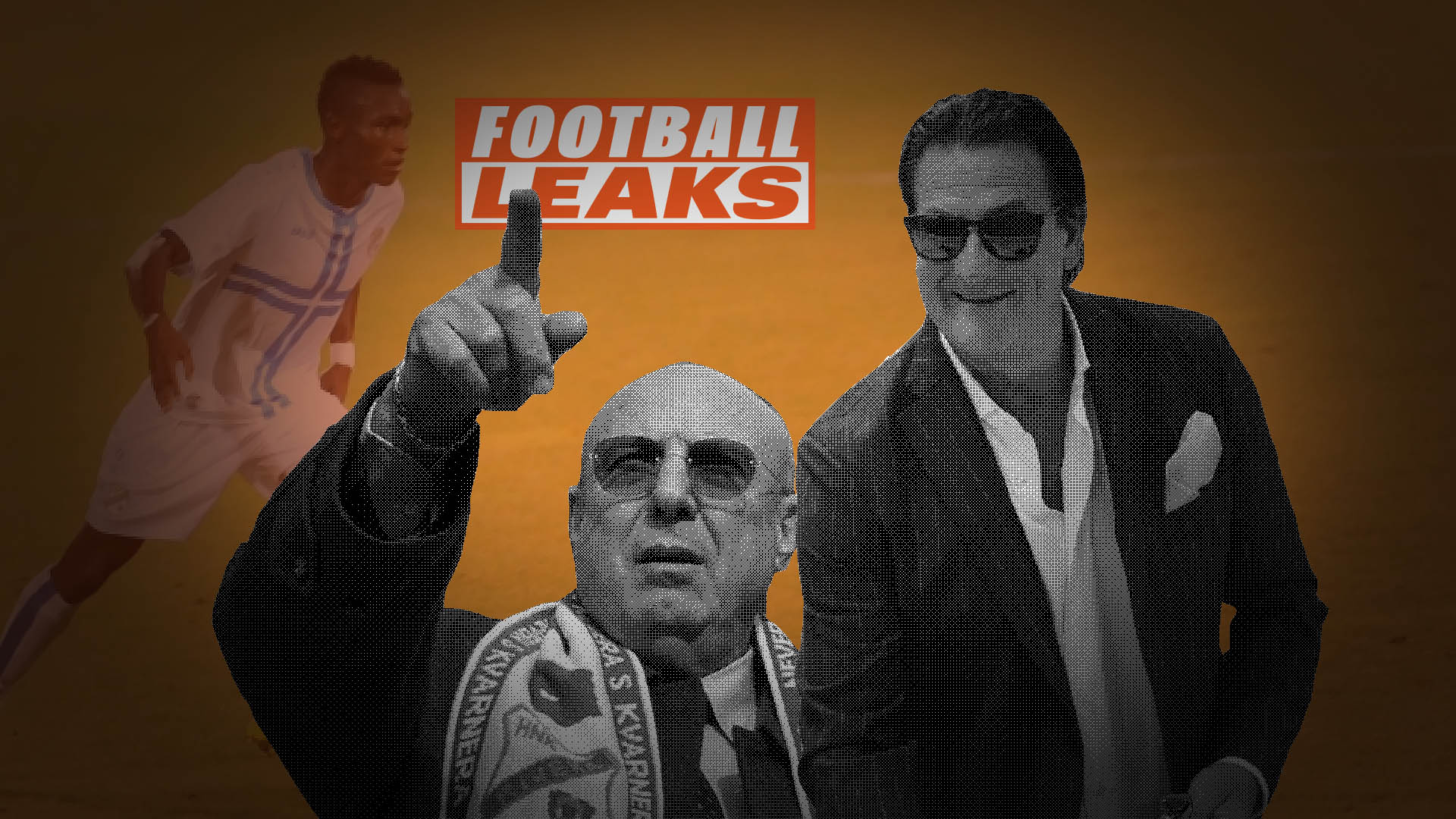

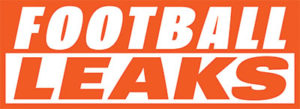
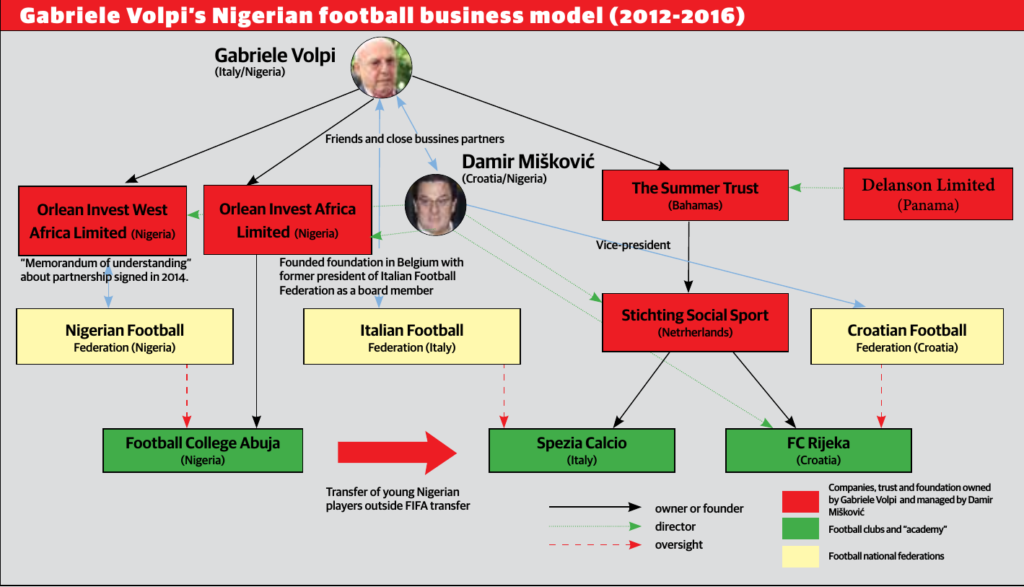
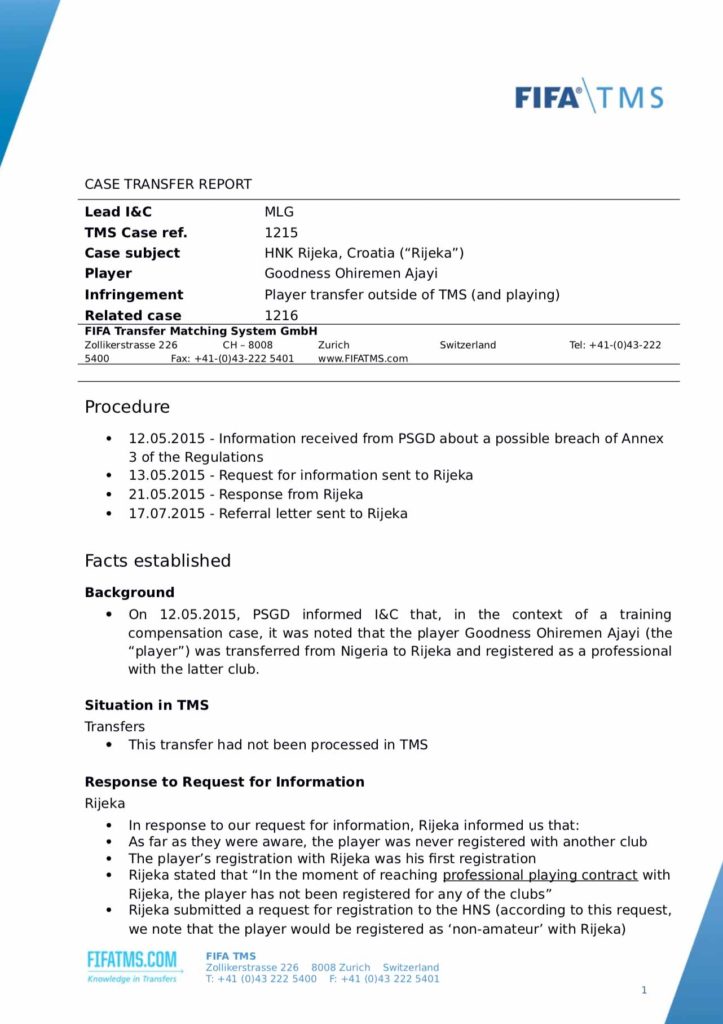
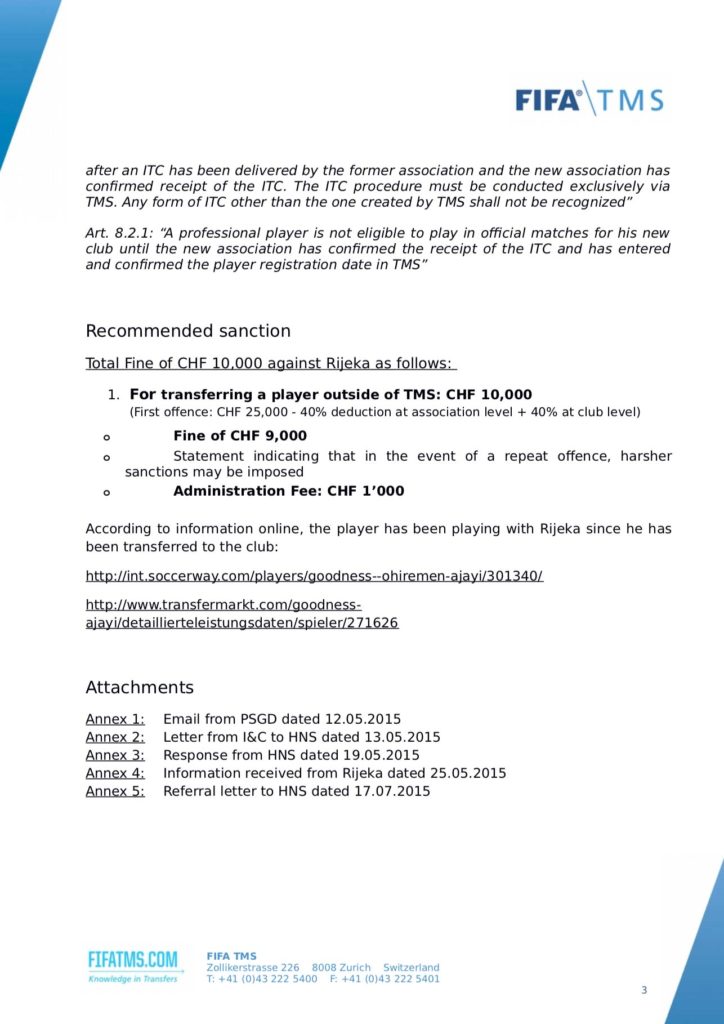
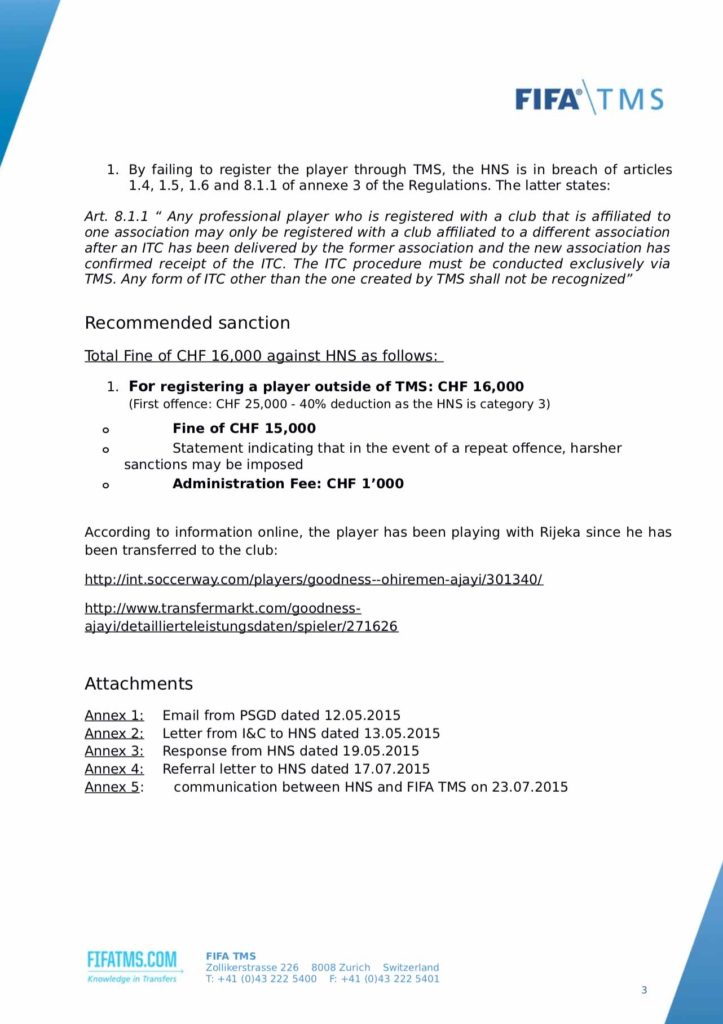
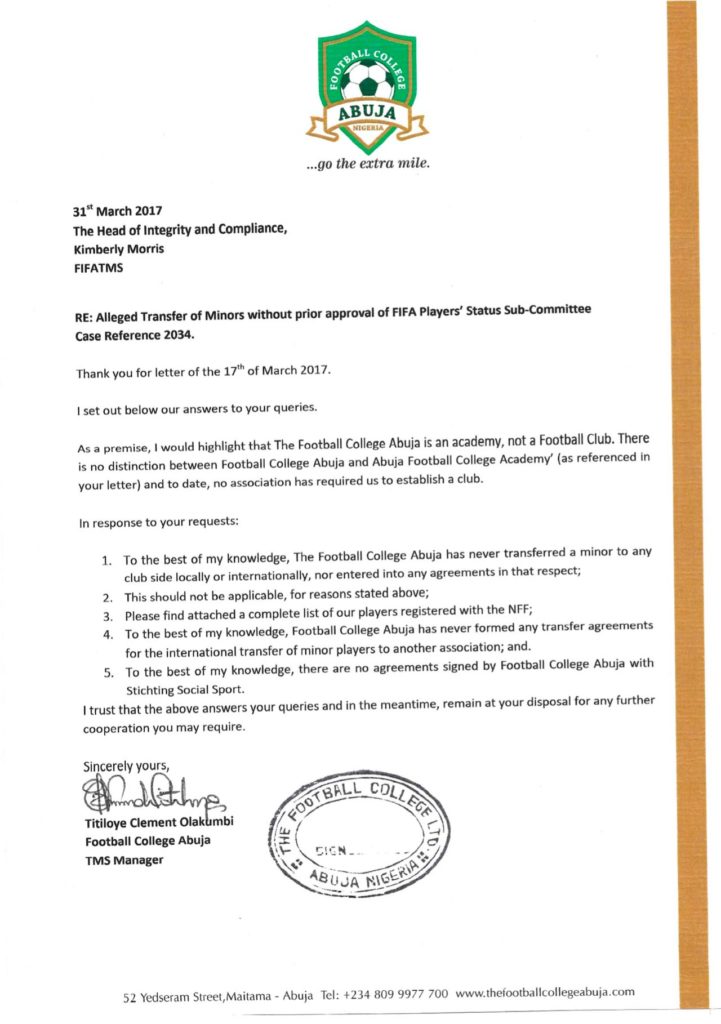
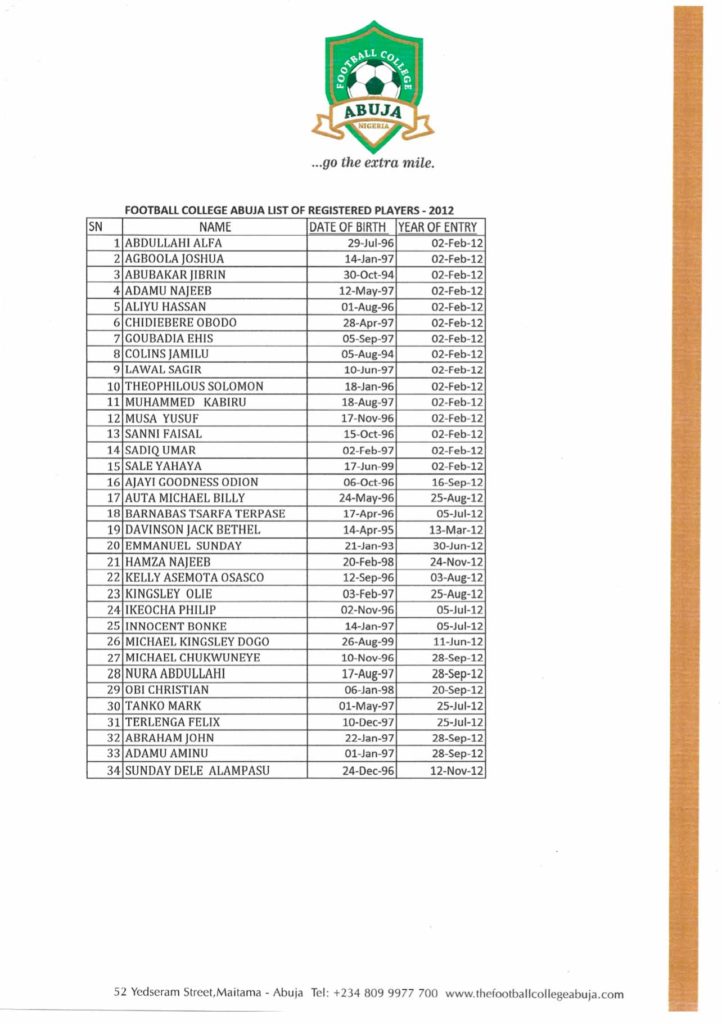
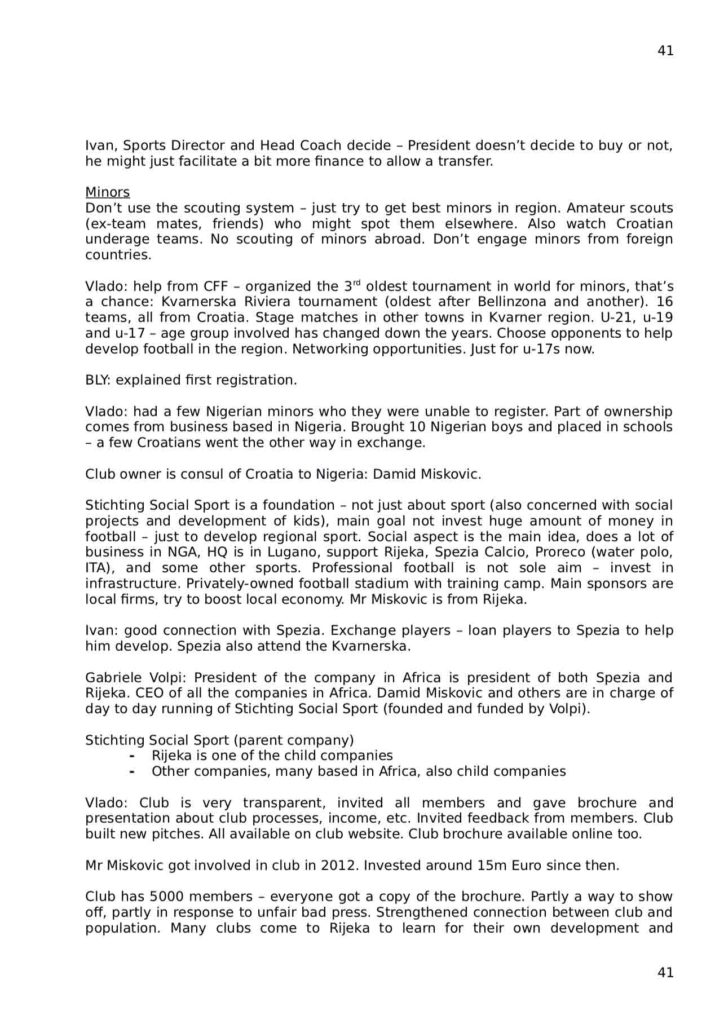
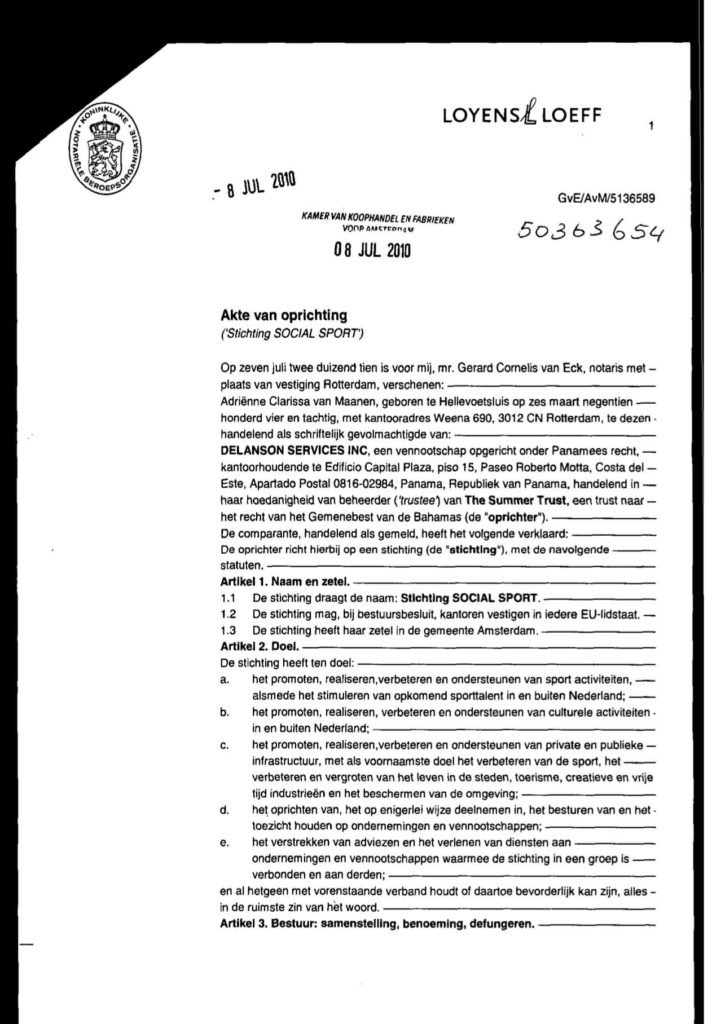
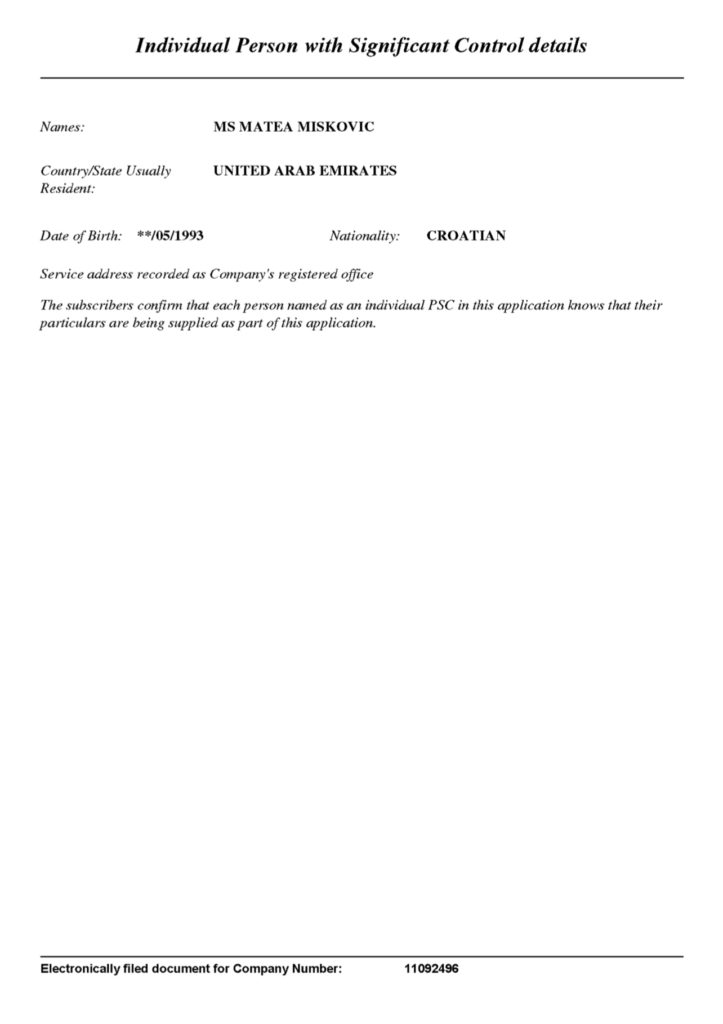
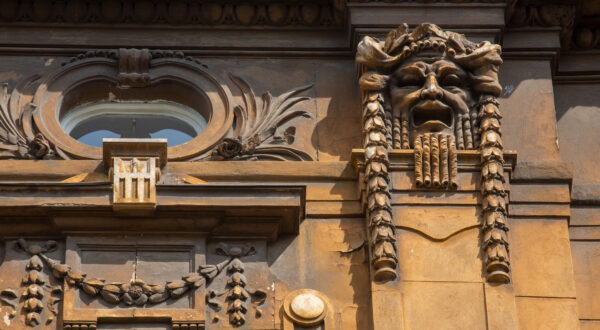
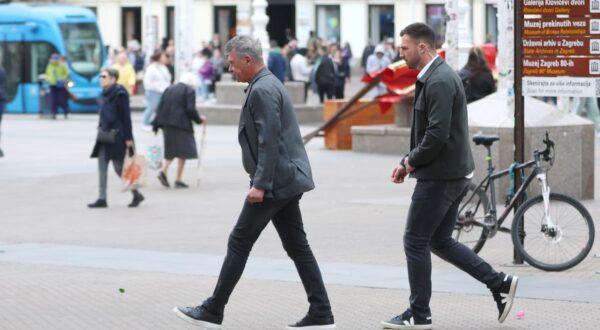
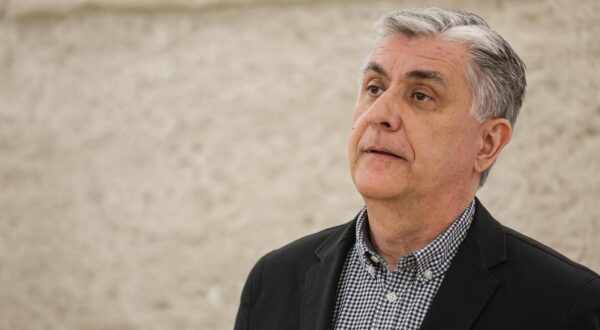
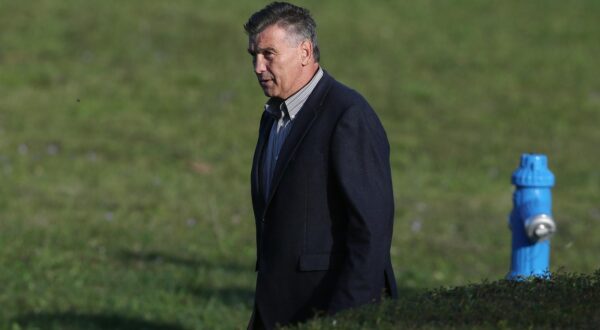
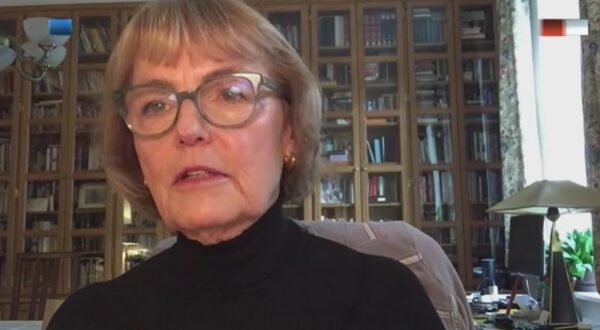
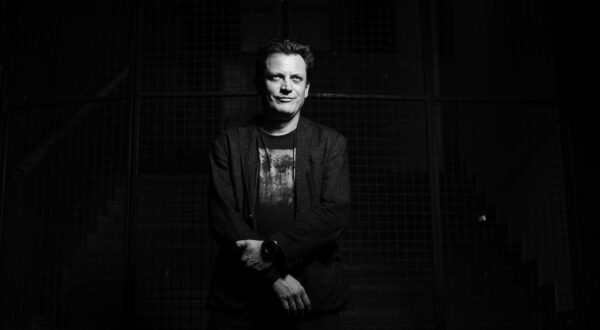
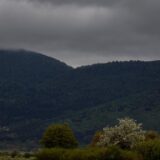
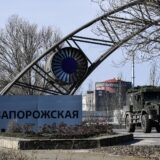
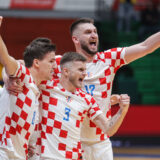




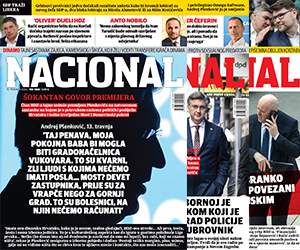















Komentari